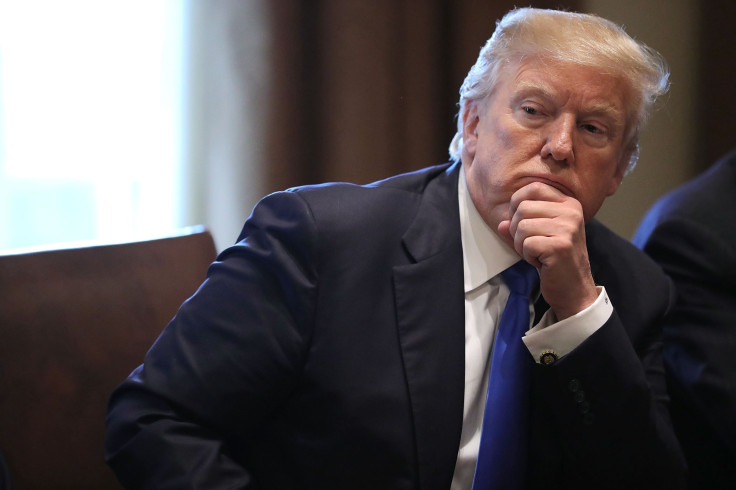Donald Trump’s ‘Undeserved Abuse’ Message On National Stalking Awareness Month Confuses People

On New Year’s Eve, the White House released an extensive message from President Donald Trump on National Stalking Awareness Month. However, one particular phrase in the statement bothered Twitter users.
“Stalking endangers the safety and well-being of millions of men and women each year,” the message began. “Too often, this serious crime goes unreported and unaddressed, prolonging feelings of helplessness, and anxiety, experienced by too many Americans.”
The statement went onto talk about stalkers and the fear they evoke in victims by “repeated and unwanted contact, including explicit and implied threats, following or waiting for victims, and harassing the victim by misusing social media.”
However, it wasn’t until the end of the statement that people got confused over what was being implied. "Together, we must ensure that those who are dealing with undeserved abuse and manipulation know that they are not alone and that there is help,” the statement concluded.
No sooner had the statement been tweeted out by various outlets on Twitter that people began criticizing the particular phrase “undeserved abuse.”
“‘Undeserved’? When exactly is abusive and manipulation deserved, pray tell,” wrote one user, while another wrote, “Does this mean that there is ‘deserved’ abuse?” pointing out the obvious alternative.
Yet a third user, who is clearly not a fan of the president, wrote: “The American citizens are receiving undeserving abuse from Trump, who doesn’t understand anything about what America stands for. It’s time to clean out the White House from the occupying abusers.”
Many others had a problem with the statement as a whole:
I bet Trump has no clue that this was even issued.
— ohuhbubb (@ohuhbubb) January 1, 2019
The irony was certainly not lost for whoever wrote this for him.
— Probably Fake News (@OstensiblyBS) January 1, 2019
Says the guy who stalked Hillary on tv.
— Scott McLaughlin (@scottmcl10161) January 1, 2019
Is tRump reciting his biography? The story of “Abuse and manipulation” that has been perpetuated by him?
— Shaken Not Stirred (@GivesZeroFucks1) January 1, 2019
President Trump on National Stalking Awareness Month:
— Dino (@AgeWithRage) January 1, 2019
"I’am aware, when can I Start?” pic.twitter.com/XU4BxKk0tm
Did he even read this?? Someone please replay the debate between Trump & H. Clinton. Very rare you catch something like that on national TV.
— Angel (@angelfritz365) January 1, 2019
The instance between Trump and former Presidential candidate Hillary Clinton that people pointed out was during the second Presidential debate on Oct. 9, 2016, in St. Louis, Missouri, when the POTUS was seen lurking behind her as she fielded questions from a live television audience.
“This is not OK, I thought,” Clinton wrote about the moment in her book “What Happened” which revisited her loss to Trump in the 2016 election, Reuters reported. “It was the second presidential debate and Donald Trump was looming behind me.
“We were on a small stage and no matter where I walked, he followed me closely, staring at me, making faces. It was incredibly uncomfortable. He was literally breathing down my neck. My skin crawled,” she added.
January 2019 marks the fifteenth annual National Stalking Awareness Month (NSAM) – a time to raise awareness, about the crime of stalking, which often leads to physical and sexual violence.
“The observance of NSAM is a vital time for us to join efforts to raise awareness and to educate about stalking and how it relates to other forms of violence. As we elevate the issue of stalking throughout the month, let’s also take this opportunity to work towards solutions to prevent stalking and related forms of violence throughout the year and beyond,” a statement from Stanford University read.
It further added that the act of stalking is often committed by someone the victim knew and that over 7.5 million people are stalked each year in the United States.
© Copyright IBTimes 2025. All rights reserved.






















